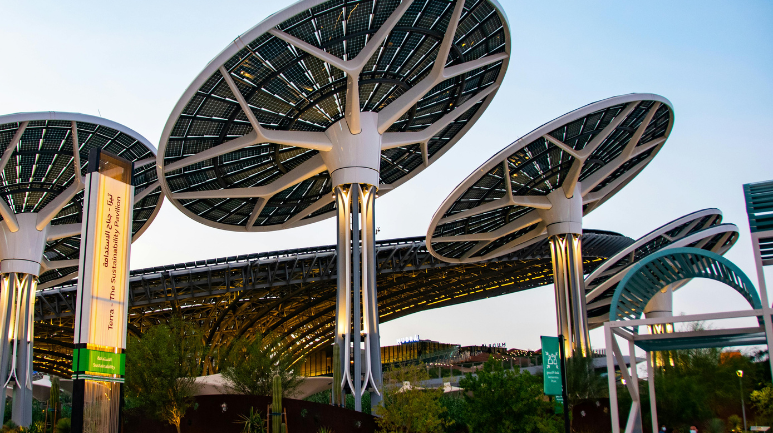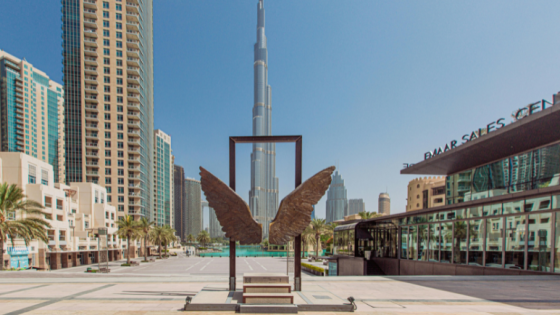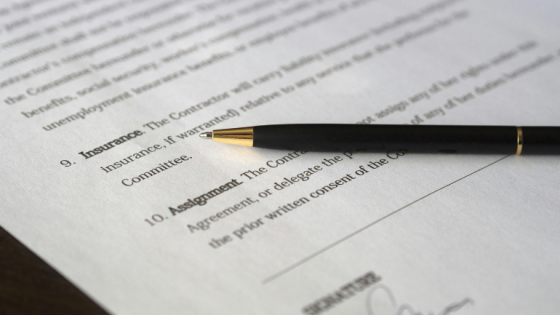Contents
- 1 Understanding Intellectual Property UAE
- 2 Defining Intellectual Property
- 3 Trademarks in the UAE
- 4 Copyright in the UAE
- 5 Patents in the UAE
- 6 Intellectual Property Law in the UAE
- 7 Intellectual Property Registration in the UAE
- 8 Utility Certificate
- 9 Industrial Designs
- 10 Layout Designs of Integrated Circuits
- 11 Conclusion
- 12 Frequently Asked Questions (FAQs)
Intellectual Property UAE is a critical component of business operations that every entrepreneur and investor should comprehend. As the UAE’s economy continues to expand rapidly with an emphasis on innovation, the importance of safeguarding intellectual property rights has never been more significant.
In this guide, we will present a detailed overview of intellectual property UAE, including its legal framework, registration processes, and associated benefits. By grasping the fundamentals of intellectual property UAE, businesses can protect their innovative concepts, products, and services, enabling them to flourish in a competitive market.
Read more: Business Strategy Dubai: Unlocking Success with Effective UAE Business Planning and Consulting
Understanding Intellectual Property UAE
Intellectual property (IP) protection is a vital element of the legal landscape in the United Arab Emirates (UAE). The UAE has established laws and regulations designed to protect the rights of creators and owners of different types of intellectual property, such as patents, trademarks, copyrights, and industrial designs.
Additionally, the UAE has signed several international treaties and agreements, including the (WIPO) Convention, the Gulf Cooperation Council agreements, the TRIPS agreement for trademarks, the Paris Convention for the Protection of Industrial Property, and the Berne Convention for the Protection of Literary and Artistic Works.
Through the registration of their intellectual property rights, inventors can both protect and commercialize their creations. This not only assures consumers that they are acquiring safe and reliable products but also fosters a trustworthy market environment.
Read more: Business Partnership UAE: Unlocking Opportunities for Growth and Success in Dubai
Defining Intellectual Property

Intellectual property consists of intangible assets, including trademarks, patents, copyrights, trade secrets, symbols, and various literary and artistic works, all legally protected. Protecting intellectual property stimulates innovation, nurtures creativity, and allows individuals and businesses to reap the benefits of their inventive ideas and works.
Much like other property rights, intellectual property rights empower their owners to fully capitalize on their original and refined concepts. These rights enable proprietors to prevent unauthorized use, handling, or modification of their products by others, allowing them to pursue legal action against infringers and seek compensation for any damages incurred.
Read more: Starting a Business UAE: A Comprehensive Guide to Company Setup in Dubai
Trademarks in the UAE
A trademark is defined as any distinctive sign that differentiates the goods or services of one business from those of another. This can encompass words, logos, shapes, colors, sounds, and other unique identifiers that can be graphically illustrated.
According to the Trademark Law in the UAE, governed by Federal Decree-Law No. 36 of 2021, a trademark represents any unique combination of words, names, logos, seals, designs, or similar marks intended to distinguish products or services from others in the market.
Trademark Registration Process in the UAE

To register a trademark in the UAE, applicants must submit their application to the (Ministry of Economy’s Trademark Office). The application should include:
- The applicant’s name and address.
- A clear depiction of the trademark.
- A statement detailing any goods or services related to the trademark if used previously.
- A list of goods or services to be covered by the trademark.
- The relevant classes of goods or services as specified by the International Classification of Goods and Services for the Registration of Marks (Nice Classification).
Necessary Documents for Trademark Registration in the UAE
Once the application has been submitted, it will be reviewed by the Trademark Office to confirm adherence to the Trademark Law. Upon acceptance, the application will be published in the Trademark Journal for opposition. If no objections are raised within 30 days of publication, the trademark will be officially registered. The required documents for this process include:
- Trademark logo.
- Power of Attorney.
- A copy of the commercial license.
- A copy of the applicant’s passport.
- Priority document, if applicable.
- Any additional relevant attachments.
Eligibility for Trademark Registration in the UAE
Under the specified regulations, the following individuals and entities are eligible to register trademarks:
- UAE nationals and both natural and legal entities.
- Foreign individuals, as well as any natural or legal entities.
- Foreigners and their entities engaged in business activities in a jurisdiction permitting equivalent operations for UAE citizens and entities based on reciprocal laws.
- Other lawful entities.
Read more: Investment Incentives UAE: Discover Tax Benefits and Opportunities in Dubai
Copyright in the UAE

According to Federal Law No. 38 of 2021 concerning Copyrights and Neighboring Rights, any original creation in the realms of literature, art, or science, irrespective of its form, meaning, or purpose, qualifies as an intellectual work.
Copyright law safeguards a variety of intellectual creations, including books, articles, software, lectures, speeches, plays, music, audio and video productions, architectural designs, paintings, sculptures, photographs, maps, and derivative works based on these protected materials.
The scope of copyright protection in the UAE also includes the title of the work and the creative concepts used in broadcast content. Furthermore, the Minister of Economy can designate additional works, such as databases and similar entities, as protected under copyright legislation.
Read more: Business Funding Dubai: Unlocking Financing Opportunities for Startups and Entrepreneurs in UAE
Patents in the UAE
A patent is a legal entitlement that grants inventors or assignees the exclusive right to prevent others from commercially exploiting their invention without consent. This is provided in exchange for a complete public disclosure of the patented invention for a specified timeframe.
In the UAE, patent protection is established under Federal Law No. 31 of 2016, which builds on Law No. 17 of 2002 concerning the Regulation and Protection of Industrial Property Rights, covering patents, industrial designs, and drawings. This protection is for new inventions that arise from innovative ideas or improvements, provided they are scientifically grounded and applicable across various technological fields.
Patent Registration in the UAE
The International Centre for Patent Registration (ICPR) at the Ministry of Economy is the designated authority for registering patents in the UAE. Individuals wishing to register a patent can apply online through the ministry’s website, which also provides details on the required documents for the patent registration process.
Patent Exclusions
A patent is not granted for inventions and creations that involve:
- Discoveries related to new species of plants or animals, as well as biological methods for producing these organisms, except for scientific methods in microbiology and microbiological products, according to the law’s executive regulations.
- Methods for diagnosing, treating, or performing surgery on humans or animals.
- Scientific principles, discoveries, theories, and mathematical methods.
- Business rules, strategies, or purely intellectual activities.
- Natural resources, unless they involve a specific process for their extraction or purification.
- Inventions that contravene public order or morals, or that may pose risks to human life, health, or the environment when applied.
Patent Validity
A patent remains valid for 20 years from the application date or the date of international filing.
Read more: Commercial Disputes Dubai: A Comprehensive Guide to Resolution and Litigation in UAE
Intellectual Property Law in the UAE
Intellectual property law in the UAE is governed by a series of federal regulations, including Federal Law No. 31 of 2006 related to the Regulation and Protection of Industrial Property Rights, Federal Law No. 37 of 1992 on Trademarks, and Federal Law No. 7 of 2002 regarding Copyrights and Related Rights.
The intellectual property laws of the UAE protect various types of intellectual property in Dubai, such as trademarks, patents, industrial designs, copyrights, and trade secrets. The UAE has a specialized court system, notably the Abu Dhabi Commercial Court, which addresses cases linked to intellectual property disputes.
Read more: Working Conditions Inspections UAE: Ensuring Health and Safety in the United Labour Workplace
Intellectual Property Registration in the UAE
In the UAE, the process for registering intellectual property protection (IP) involves submitting an application to the Ministry of Economy, the Copyright Office, or the Patent Office, depending on the specific type of IP being registered. The submission should include all relevant information and documentation, such as a detailed description of the IP and the owner’s information, along with any supporting evidence of ownership.
Duration of Property Protection in the UAE
Under Federal Law No. 7 of 2002 concerning Copyrights and Related Rights, Article 20 specifies that the economic rights of the author are protected for their lifetime plus an additional 50 years, starting from the first day of the calendar year following their death. For applied art, economic rights expire 25 years from the first day of the calendar year following their initial publication.
Benefits of Registering Intellectual Property in the UAE
There are numerous benefits for companies in the UAE to register their intellectual property, including the protection of IP rights and the prevention of potential disputes. Completing the registration process entitles the company to government-backed protection of its patents, copyrights, or trademarks, ensuring that its innovative works are not misappropriated, altered, or illegally used. Key advantages of registering intellectual property in the UAE include:
- Exclusive Rights: Owners receive exclusive rights to use, sell, and license their intellectual property, thwarting unauthorized use, copying, or exploitation by others without consent.
- Market Position Maintenance: Helps prevent theft of unique ideas and inventions, allowing businesses to maintain their competitive advantage.
- Attracting Investment: A company with legally protected assets is more appealing to investors and can facilitate funding opportunities.
- Revenue Generation: Offers possibilities to license or sell intellectual property, creating additional income avenues.
- Legal Remedies: Should there be any infringement of IP rights, registration can provide legal recourse, such as damages or injunctions, to halt unauthorized use or exploitation.
Read more: Termination Procedures UAE: Essential Guide to Employment Rules and Labour Law
Utility Certificate
A utility certificate is issued for new inventions that are capable of industrial application but lack the level of creativity required for patent protection. The utility certificate cannot be granted for the following inventions and creations:
- Discoveries of new species of plants or animals, as well as biological methods for animal or plant production, except for scientific methods in microbiology and microbiological products, by the law’s executive regulations.
- Methods for the diagnosis, treatment, or surgical procedures involving humans or animals.
- Scientific concepts, discoveries, theories, and mathematical methodologies.
- Business rules, strategies, and modes of conducting purely intellectual activities.
- Natural resources, unless the process for their extraction or purification is involved.
- Inventions that contradict public order or morals, or that may endanger human life, health, or the environment when utilized.
Validity of the Utility Certificate
A utility certificate is effective for 10 years from the application date or the date of international filing.
Read more: Tax Exemptions UAE: Guide to Corporate Tax Exemptions and Registration in the United Emirates
Industrial Designs

An industrial design comprises any ornamental or aesthetic composition, whether three-dimensional or two-dimensional, that imparts a specific appearance to an industrial or artisanal product.
Eligibility Criteria for Industrial Designs
To qualify for an industrial design, the criteria include:
- Novelty.
- Compliance with public order and morals.
Validity of Industrial Designs
An industrial design remains in effect for 20 years from the date of application or the date of international filing.
Industrial Property Registration
The Ministry of Economy’s Innovation and Industrial Property Development Department oversees the registration of all industrial property rights as outlined by law.
Read more: Working Hours Regulations UAE: Navigating Labour Laws for Employment Success
Layout Designs of Integrated Circuits
The layout design of integrated circuits refers to any product in its final or intermediate form that includes components—at least one of which is an active element—mounted on an insulating substrate, forming a complete assembly with some or all connections intended to perform a specific electrical function.
Validity of Layout Designs of Integrated Circuits
A layout design is valid for 10 years from the date of application or the date of first commercial exploitation, whether domestically or internationally, whichever occurs first.
Read more: Business Mentorship UAE: Nurturing Success Through Expert Guidance in Dubai
Conclusion
Intellectual Property UAE is essential for safeguarding the creations and innovations of individuals and businesses alike. Understanding UAE’s IP laws is vital for anyone navigating the complexities of intellectual property rights. The registration of patents, trademarks, and copyrights provides the necessary legal foundation to protect these assets, ensuring that authors of intellectual works can maintain ownership and derive benefits from their creations.
The UAE Intellectual Property Office plays a crucial role in facilitating the registration and protection of various forms of intellectual property. By effectively leveraging IPR protection, entities can prevent unauthorized use and infringement, which can significantly impact commercial success. Among the most common examples of intellectual property are logos, branding, inventions, and artistic works, all of which require careful protection to maintain their value.
A solid understanding of intellectual property rights in the UAE safeguards your innovations and fuels economic growth by fostering a culture of creativity and originality. Embracing these protections is essential for thriving in today’s competitive landscape.
Read more: Business Ownership UAE: A Guide to Foreign Companies Mainland Ownership
Frequently Asked Questions (FAQs)
What is UAE intellectual property law?
Dubai’s IP laws protect a wide range of intellectual property, including trademarks, patents, industrial designs, copyrights, and trade secrets. The UAE also has a specialist court system, the Abu Dhabi Commercial Court, which considers issues involving intellectual property disputes.
What are the 4 main types of intellectual property?
The majority of intellectual property assets come into one of four categories: patents, trademarks, copyrights, and trade secrets.
How can we protect intellectual products in the UAE?
The Ministry of Economy is the institution responsible for registering intellectual works in the UAE. To register intellectual works, fill out an online application on the ministry’s website. As per Article 20 of Federal Law No.
Does the UAE have copyright laws?
According to Article 2, creators of intellectual work are protected if their rights are violated in the UAE. Copyright law protects the following intellectual works: books, booklets, articles, and other literature.













